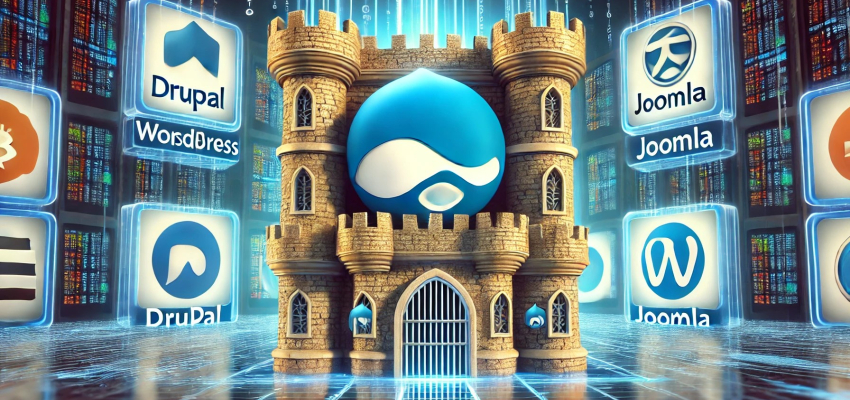Drupal Security Features and Best Practices: Why Choose Drupal for Security?

n today's digital landscape, security breaches and data leaks have become increasingly critical concerns. Choosing a secure content management system (CMS) is a crucial decision, especially for large-scale projects. Drupal stands out as one of the most secure platforms, with advanced security features and a security-focused approach. So, why is Drupal considered more secure than other platforms, and why is it an ideal choice for security-conscious projects?
Drupal offers a robust user role and permission system that provides multi-layered access control. While many CMS platforms offer basic permission settings, Drupal’s detailed access management system ensures that only authorized users can interact with sensitive content. This is essential for complex projects involving large teams, ensuring minimal security risks. Other popular platforms, such as WordPress, often require third-party plugins for similar access control features, which may introduce security vulnerabilities.
One of Drupal’s greatest strengths is its dedicated security team. This team actively monitors the platform for security vulnerabilities and releases updates swiftly. Drupal’s community is highly proactive in addressing potential threats, keeping the platform secure. In contrast, platforms like WordPress, with its vast ecosystem of plugins, can face delays in addressing security issues, especially when vulnerabilities are found in third-party extensions.
The modular structure of Drupal further enhances security by allowing users to implement additional security layers through specialized modules. For example, Security Kit and Password Policy are highly effective tools for hardening site security. While WordPress and Joomla also offer security plugins, the integrated security approach of Drupal ensures a more seamless and reliable experience.
When it comes to database security, Drupal offers built-in protection against SQL injection attacks. This is crucial for projects with high-security requirements. WordPress, on the other hand, has often been vulnerable to SQL injection attacks through its third-party plugins, making Drupal a safer option for database security.
How Drupal Compares to Other CMS Platforms
Compared to WordPress and Joomla, Drupal’s tight-knit community and strict module review process provide a higher level of security. WordPress, while incredibly popular, often faces security challenges due to its vast plugin ecosystem, where vulnerabilities can be harder to manage. Joomla also offers solid security features, but Drupal’s security capabilities, especially for large-scale corporate and governmental websites, are unmatched.
Headless CMS platforms, while providing flexibility in content management, can sometimes struggle with API-based security vulnerabilities. Drupal, with its robust API management system, excels in both traditional and headless CMS scenarios, offering secure data flow and integration without sacrificing security.
Conclusion: Why Choose Drupal?
Drupal’s advanced security features, modular architecture, and proactive community make it a standout choice for projects where security is a top priority. Whether you are managing a large enterprise site or a government project, Drupal’s security capabilities ensure that your data remains safe. While other CMS platforms provide various security options, Drupal’s integrated approach, regularly updated modules, and user-friendly security practices set it apart, making it one of the most secure CMS platforms available today.
